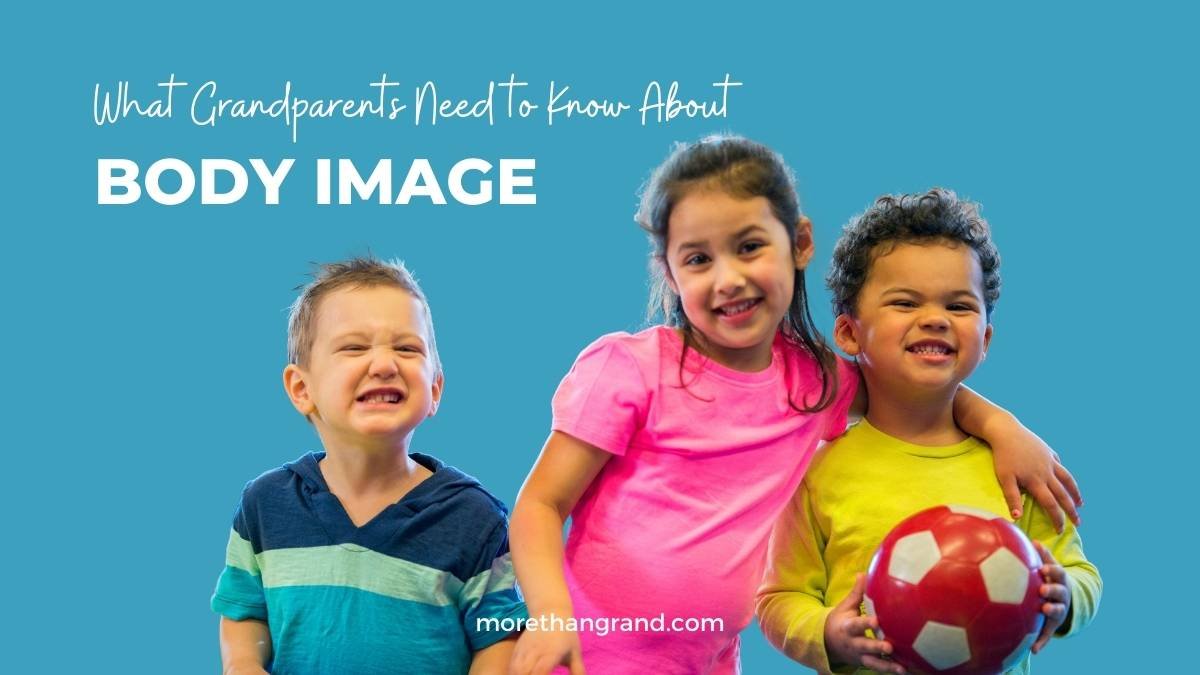What Grandparents Need to Know about Body Image
Even positive comments about our grandchildren’s bodies can send the wrong message.
The last time her mother visited, Denise found herself consoling her 7-year-old son over something she’d never expected.
“He was in his room crying, and I asked him what was wrong,” she told a friend. “He said he didn’t want to be fat. I had to run through the morning’s conversation in my head before I realized that Grandma had said he was getting a little chubby. I’m pretty sure she had no idea how much her off-hand remark affected him.”
After assuring her son that his body was just the right size to be strong, healthy and able, Denise had a little chat with her mother. And then asked me to have a little chat with all of you about body image!
What Is Body Image?
Body image is how your grandchild feels about his or her body. Positive or negative, that image starts to form at a very early age—as young as three years old, according to some researchers. In the early years, the messages they get from the people around them have the most impact on how they view their bodies. Too many comments about their size, weight, or appearance can cause them to base their self-worth on their bodies instead of their abilities.
Why Does Body Image Matter in Young Children?
Poor body image has been linked to low self-esteem, higher chances of anxiety or depression, and eating disorders. In the US, 40-60% of girls ages 6-12 are concerned about their weight or about becoming too fat. (Smolak, 2011). Over half of 11-16 year olds in UK say they often worry about the way they look. In other words, it’s crucial to make sure they get the right messages in those formative early years. This means what grandparents say matters—a lot.
How Grandparents Can Help Foster a Positive Body Image
As children get older, media, social media and peers all have a strong influence on their self-image. Setting a foundation before your grandchildren are exposed to those messages will help protect them when they encounter societal pressure.
1: Help Kids Feel Confident
Encourage your grandchildren to focus on what their bodies can do, not how they look. This will likely take some practice on your part. We are used to saying things like, “You have such pretty hair!” or “Let me kiss those chubby cheeks!”. Frequent comments on appearance, both positive and negative, create the impression that appearance is extremely important. The first step is to be aware of your own behavior. Pay attention to how often you comment on:
Hair length, color, curliness, etc.
Height
Weight
How much they eat
How they look
The things you compliment them on are the things they will think are important about themselves. Try to shift your compliments to things like “I love the way you make your baby sister laugh” or “Thank you for putting all the books away so quickly.”
2: Be A Good Role Model
You can be a positive role model by taking care of your own body, and enjoying what it can do. If you have physical limitations, help your grandchildren understand that they don’t define you. Focusing on your abilities will show them that a person is more than their appearance.
Don’t shy away from being photographed, which sends the signal that you don’t like the way you look. Instead, get in that photo with your grandchild!
Don’t put yourself down. Your grandchildren don’t see your wrinkles or thick ankles as negative unless you grumble about them.
3: Watch What You Say
In our weight-conscious society, unguarded comments about ourselves or others often send the message that thin is the ultimate goal. Avoid observations like these:
remarking on someone’s weight loss (or gain)
saying you can’t eat something or you’ll get fat
declaring you will have to exercise extra to work off your meal
talking about exercising to lose weight
4: Talk About It
If you hear your grandchild making negative comments about their bodies (or other people’s), see it as a teaching moment. Instead of dismissing their concerns about their bodies, ask them to talk to you. If they say unkind things about another child’s body shape or size, talk to them about why that might be hurtful and help them recognize that child’s positive attributes. There are several quality books for young children about body image--read about our favorites here.
One of the joys of being a grandparent is having a positive impact on our growing grandchildren. Now that you know how much impact your comments can make, what will you do differently?
More Things Grandparents Need to Know

